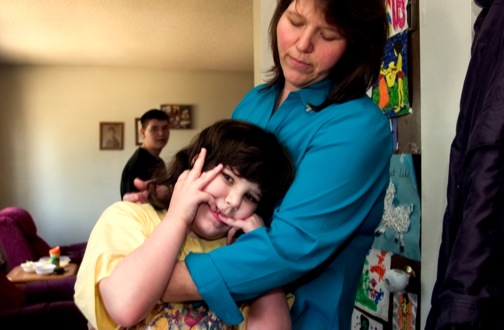|
Facilitating Communication in Nonverbal Students with Autism Tips for Parents
|

http://blog.mlive.com
|
 http://blog.mlive.com |
Links:
|
__________________________________________________ Raising a child with Autism or any special need/ difference is a unique experience. As the eldest of three siblings with special needs, I see, first-hand, the daily triumphs and struggles that special needs parents go through to meet their children's many needs. Somewhere in the midst of caring for the social-emotional, academic, physical, and medical needs of their child, a parent has to find time to care for him or herself. Easier said than done and even when you get it done (self-care time), it's not easy to just RELAX. With my parents, it took years until they mastered the art of taking time for themselves. Their marriage nearly dissolved. All relationships in their lives were strained. They were exhausted and depressed. And then my brother burnt down their house. On accident, of course. You see, my brother is a boy with Autism; but, he is a boy first. Boys usually go through a pyromaniac phase and my brother was no exception. Only, his lack of impulse control and safety awareness led to him lighting a couch (and then my parent's house) on fire. Most other kids would have stopped at napkins. The community rallied around my parents (go Torrance!) and provided much needed support. Support came in the form of baby sitting, housing, trust funds for my brother and sister, bake sales, car washes, and veterinarian care for my dog (who was in the fire). Most importantly, support came in the form of therapy to treat everyone in the fire for PTSD (Post-Traumatic Stress Disorder). Therapy was good for everyone but especially beneficial for my mother and father who probably should have signed up years ago. Getting help was the first step in getting toward some type of family normalcy for us. I have two sisters and one brother. My sister, Sam, has struggled with ADHD and now Adult ADD her entire life. She is an extremely successful 23 year old college graduate. My brother and other sister are both severely impacted by their diagnoses. My brother has what practitioners sometimes refer to as "low-functioning" or "classic" Autism. He is good with his hands and can repair a VCR faster than I can. He has a crush on Belle from Beauty and the Beast. He is also physically aggressive when upset and needs an AAC device to communicate his feelings and most of his wants and needs. My sister, Laurie, is completely nonverbal and also uses an AAC device. She has a dual-diagnosis of Down Syndrome and Autism. She has a Go-Talk (AAC Device) and 90% of the time she is using it to tell you she wants to go to the pool. It has been hard for my parents to watch television specials, news reports and documentaries on children with Autism because most of the children featured do not look like my youngest sister and my brother, Josh. There just aren't as many severe Autism cases featured on TV, in movies or in the paper. My mom thinks it's because people don't want to see it--they want a happy ending. A child has Autism but received therapy and now he's blending in with his peers. While that is so exciting when it does happen, my brother and sister would like you to know that it isn't always the case. I enjoyed this documentary about Sue Rubin. She is extremely intelligent and attending college. She is nonverbal, however, and requires an AAC device to communicate. She is still severely impacted by her Autism and struggles to control her maladaptive behaviors. ------------------------------------------------------------------- Sue Rubin is an adult, nonverbal woman with Autism. She has a webpage that she maintains herself and also made a documentary about her very special life called, "Autism Is A World." You can check out a preview of the documentary by clicking on the link on the left. -------------------------------------------------------------------- Please take a look at the links on the left. There are online news articles and chat forums for parents of nonverbal children with Autism as well as daily living tips and some inspiration for good measure. ________________________________ Strategies used in the classroom can also be used in the home. Check out the links on the previous page ("Tips for Teachers"). |